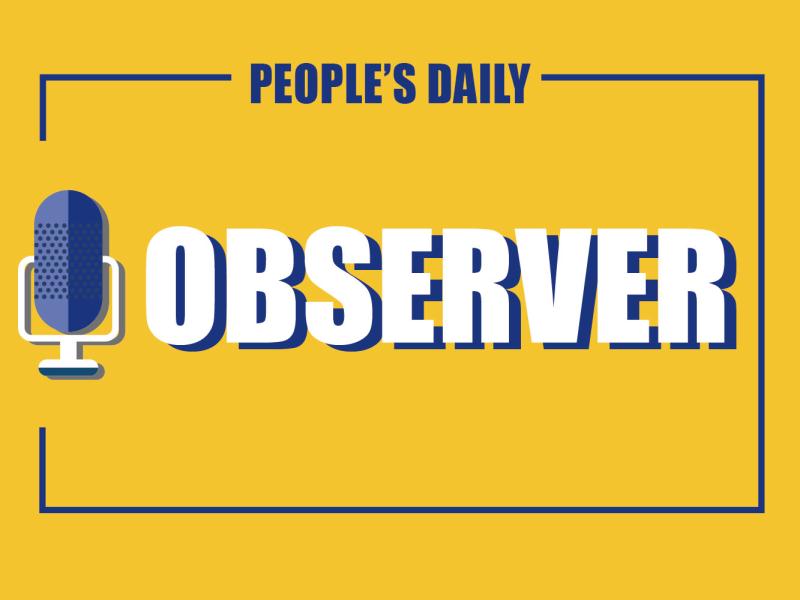
Recently, residents in dozens of cities in the US have staged assemblies and demonstrations to protest racial discrimination and hate crimes against Asian Americans.
While more and more people in the world have seen the “true colors” of the US as regards its worsening domestic human rights crisis, the US Department of State released the Country Reports on Human Rights Practices for 2020 on March 30, nitpicking the human rights conditions in nearly 200 countries and regions, and stigmatizing China by brazenly making irresponsible remarks and knitting lies about the country’s handling of the COVID-19 pandemic and Xinjiang-related affairs.
At a press conference, some US officials claimed that all people are entitled to human rights and yet they have turned a blind eye to the historical, long-term and deep-rooted human rights problems at home, and have no intention to truly resolve such problems.
Racism prevails in the US in a comprehensive, systemic and continuous manner. Certain American politicians can’t quit political manipulation on the origin of the novel coronavirus. Asian Americans are suffering even severer racial discrimination.
From March 19, 2020 to February 28 this year, Stop AAPI Hate had received 3,795 reports of incidents of racial discrimination against Asian Americans. Stop AAPI Hate is a California-based nonprofit social organization that tracks incidents of discrimination, hate and xenophobia against Asian Americans and Pacific Islanders in the US.
The mass shootings in the Atlanta area caused the deaths of eight people, including six Asian women. Many Asian Americans have trouble sleeping at night lately, saying that they feel like they can be attacked willfully at any time, some US media reported.
In fact, the systematic racial discrimination in the US is manifested in all aspects of social life.
Data shows that colored juveniles account for about one-third of residents under 18 in the US and yet two-thirds of the total number of minors incarcerated.
The COVID-19 infection rate of African Americans is three times that of white people in the US, and the number of black people who died of the virus is twice that of white people.
Meanwhile, black Americans are about three times more likely than whites to be killed by the police.
Of the 8,302 single-bias hate crime cases reported by law enforcement agencies in 2019, 57.6 percent involved race, ethnicity and ancestry, said an FBI report last year.
The facts above have fully proven that “Color has obviously played a major role in determining the fate of many Americans,” as Thomas Sowell wrote in Ethnic America: A History.
When the United Nations Human Rights Council examined the human rights record of the US in November, over 110 countries in the world criticized the human rights situation in the US and dozens of special rapporteurs with the council frowned upon existing discrimination against minorities and other issues in the US.
The US has exposed the hypocritical nature of American democracy as it recklessly slandered other countries on human rights while trying to play down its own problems on the subject.
US politics has been trapped in divisions, which makes it hard for the government to launch effective measures to heal the wounds caused by racial discrimination and restore racial justice. Some US officials have even openly supported far-right ideas and added fuel to the flames of white supremacy.
The international community has become increasingly aware that the intensifying racial crisis in the US in recent years has everything to do with the inaction of the government.
The anti-Asian racism and violence are not random acts perpetrated by deranged individuals, but an expression of the country’s long history of systemic racism and racial violence targeting Asian Americans and Pacific Islanders, wrote Erika Lee, a history and Asian American studies professor at the University of Minnesota.
Human rights is neither a slogan nor a tool for pressuring other countries. Instead it should be reflected in tangible actions. However, it seems that the US, the so-called "beacon of human rights," is not able to bring light to its own people who are in desperate need of human rights protection.


